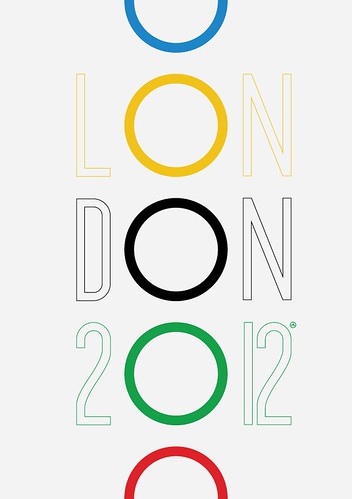The Olympics
 Unless you've been living under a rock for the last couple of weeks, you're probably aware that there's a small sporting competition going on in London.
The Olympics is - of course - one of the largest sporting events on the face of the planet, and London were successful in gaining the rights to stage it this year.
Unless you've been living under a rock for the last couple of weeks, you're probably aware that there's a small sporting competition going on in London.
The Olympics is - of course - one of the largest sporting events on the face of the planet, and London were successful in gaining the rights to stage it this year. In preparation for the games the country has gone into overdrive and put together a project that is quite staggering in its complexity.
Amongst other things they have:
- Identified a site in East London that can stage the majority of the sports
- Gained the appropriate planning permissions and clearances to build a staggering number of sporting venues and supporting buildings on the site
- Upgraded the associated infrastructure around the site to accommodate increased traffic and energy needs
- Identified and upgraded a number of additional sporting venues outside the Olympic park to deal with the rigours of hosting an Olympic event.
- Built a complete web system to manage both the public interaction with the games (identifying and displaying competitors, venues, sports, and medal information) whilst also creating a fully functional e-commerce site to deal with the sale and distribution of tickets for the games.
- Dealt with accommodation and accreditation for all athletes, supporting personnel and local media.
Attached to that has been the ancillary tasks linked to this effort, such as creating a totally awe-inspiring opening ceremony using over seven thousand volunteers highlighting some of the best bits of British history and culture.
If you have some time I thoroughly recommend looking over the London2012 website. As well as giving live updates of the games, the competitors and the results, there is also a fascinating amount of information behind the scenes about actually building the venues and preparing for the games,
The Legacy
The one thing that is apparent reading the literature is that the organisers of the games had two main objectives in mind.- Creating an Olympic games that would be both well run and memorable
- Creating a sporting legacy for sport in the country.
Secondly there is the physical legacy of the Olympic venues themselves. The Olympic Park has always intended to be something that would remain after the games were over. It is meant to stand as a reminder of the greatness of the games and the achievements of the athletes. But the venues themselves are going to be used and available to the public long after the games have disappeared into the record books.
The velodrome - which is widely acknowledged as being one of the best in the country - will be open to the general public, as will the aquadrome and a number of other venues. The temporary venues - such as the beach volleyball stadium in Horse Guards Parade - are going to disappear leaving just archive footage and a couple of specially commissioned paintings as reminders of what was there, but several billion dollars have been spent on the Olympic Park itself, and it is hoped that the legacy will be more impressive than the decaying overgrown stadium that now exists in Athens after their Olympics.
The Sports
One of my favourite parts of the Olympics was watching some of those sports that have never, really, appeared on my radar before. Examples of this include the diving, synchronised swimming, water polo and mountain bike riding. Thanks to some great information on the BBC website about the sports themselves, the rules and what to watch, I've learned a lot about these sports.For me the highlight - apart from the Super Saturday when Britain won 4 gold medals in 45 minutes - was watching the controlled chaos which is the BMX cycling competition.
Eight competitors in a single race flying round a course with jumps, dips, a tunnel (in the case of the ladies race) and speed sections which bring the riders to within millimetres of each other. This was the site of several spectacular collisions resulting in concussions, broken wrists and collar bones, and one unlucky competitor being stretchered off after a nasty crash which saw her head plant into one of the 'knuckles' on the course. But despite these crashes the short races (each averaging about 37 seconds) we're fascinating to watch and almost had me holding my breath throughout each one. The issue I had with BMX was that despite having to do a seeding run, three heats, and three semi final runs just to get to the final, the medals were decided on a single run. One mistake - as happened with the British hopefuls - and all the hard work was undone. It just doesn't seem fair.
On the topic of unfairness I have to say something about Usain Bolt. Here's a guy who has trained - like all the athletes - for his Olympic chance and yet to get his medal he had to run for a grand total of about 30 seconds (a heat, a semi-final, and a final). Sure he was running at maximum speed, but it was just three very short races. Compare this with, say, Mo Farah who had to run a heat, a semi-final and a final each lasting nearly half an hour. And at the end of it all he gets exactly the same medal as Usain “I'm a legend even though I only ran for 30 seconds” Bolt. Makes you wonder, doesn't it?
And don't get me started on the marathon runners....

